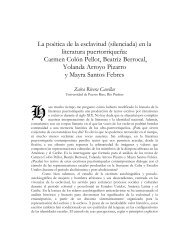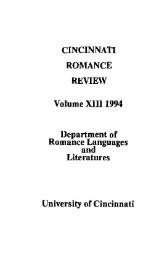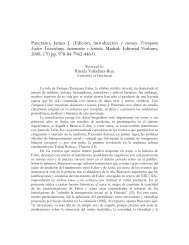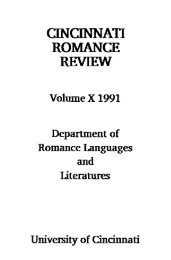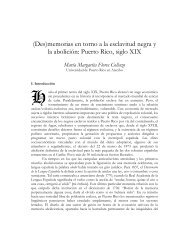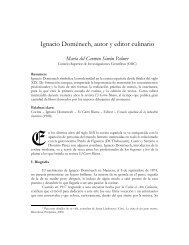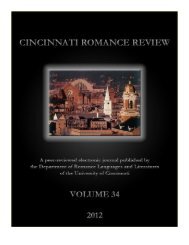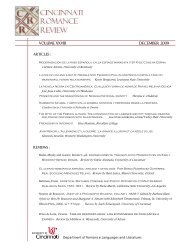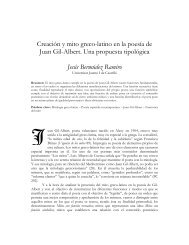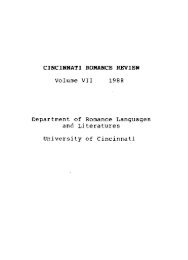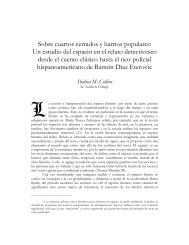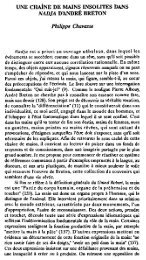INSCRIPTIONS OF DANTE'S BEATRICE IN GERMAINE DE ...
INSCRIPTIONS OF DANTE'S BEATRICE IN GERMAINE DE ...
INSCRIPTIONS OF DANTE'S BEATRICE IN GERMAINE DE ...
You also want an ePaper? Increase the reach of your titles
YUMPU automatically turns print PDFs into web optimized ePapers that Google loves.
42 Inscriptions of Beatrice in Corinne<br />
a foreign Dido luring him to a Carthage of sensuality. When Nclvil<br />
abandons the wisdom of his Sibyl for the duty that his English nature<br />
requirc:-; 0 f him, however, the prophetess is silenced: "La Sibyllc ne<br />
rend plus d'oraclcs; son g.enie [...Jcst fini" ( 562).<br />
Stael's protagonist, although born of the Enlightenment, is generally<br />
considered a passionate Romantic, as is her creator. Claire L.<br />
Dehon says, "on connait Ie role de Mmc de Slae] dans ]'elaboration de<br />
]a penscc romantiquc," and Gutwirth notes that Corinne "laY[5] claim<br />
to the ambient Romantic individualism," that she is "grandiloquently<br />
neoclassical in the style afher person, but Romantic, both in the dialectic<br />
afher character and [...Jthe unreconeiled nature ofher revolt against<br />
the world" (Dehon I; "Corinne and Consuelo as fantasies of Immanence<br />
23; "Mme de Stael's Debt to Phi:dre: Corinne" [75). It should<br />
be recalled that Stael is just as much a child of the Enlightenment as<br />
is the Nclvil who can respond only to a religion of rationalism. While<br />
"j'enthousiasme" or "vivacitc de l'esprit" is an essential element of<br />
Corinne's art, religion, and patriotism, she considers herself a rational<br />
creature (55). Similarly, Statl's aesthetics are those ofa Romantic, her<br />
discourse that of a rationalist. For example treatises on government,<br />
justice, literature, and history appeal to reason, and a story (perbaps<br />
apocryphal) narrates that she onee commented to Napoleon, "I should<br />
prefer that you judge me worthy to talk reason with you" (Corinne;<br />
m; l'a~y ix). In Stael's philosophy, it should be recalled, enthusiasm<br />
inspires art, love, and patriotism, but the passions ofavarice, pride, and<br />
ambition (those punished in Dante's Inferno) destroy human happiness.<br />
Therefore passion alone is an ineffective ruler. Corinne's rational<br />
diseour5e on Rome's fon)1t~r civic virtue and Naples's current moral<br />
lassitude arc intended to reveal her as an insightful student of history<br />
and politics. So much so that Nelvil is ovefVIhelmed, remarking that<br />
the highest destiny of man or woman is not "l'cxcreice dcs facultcs<br />
intclleetuelles" (343). Neither in political, aesthetic, nor metaphysical<br />
thought does Siael want her reader to admire Corinne's passion at the<br />
expense of her reason.<br />
In Michel Foucault's theOly the episteme of the seventeenth and



